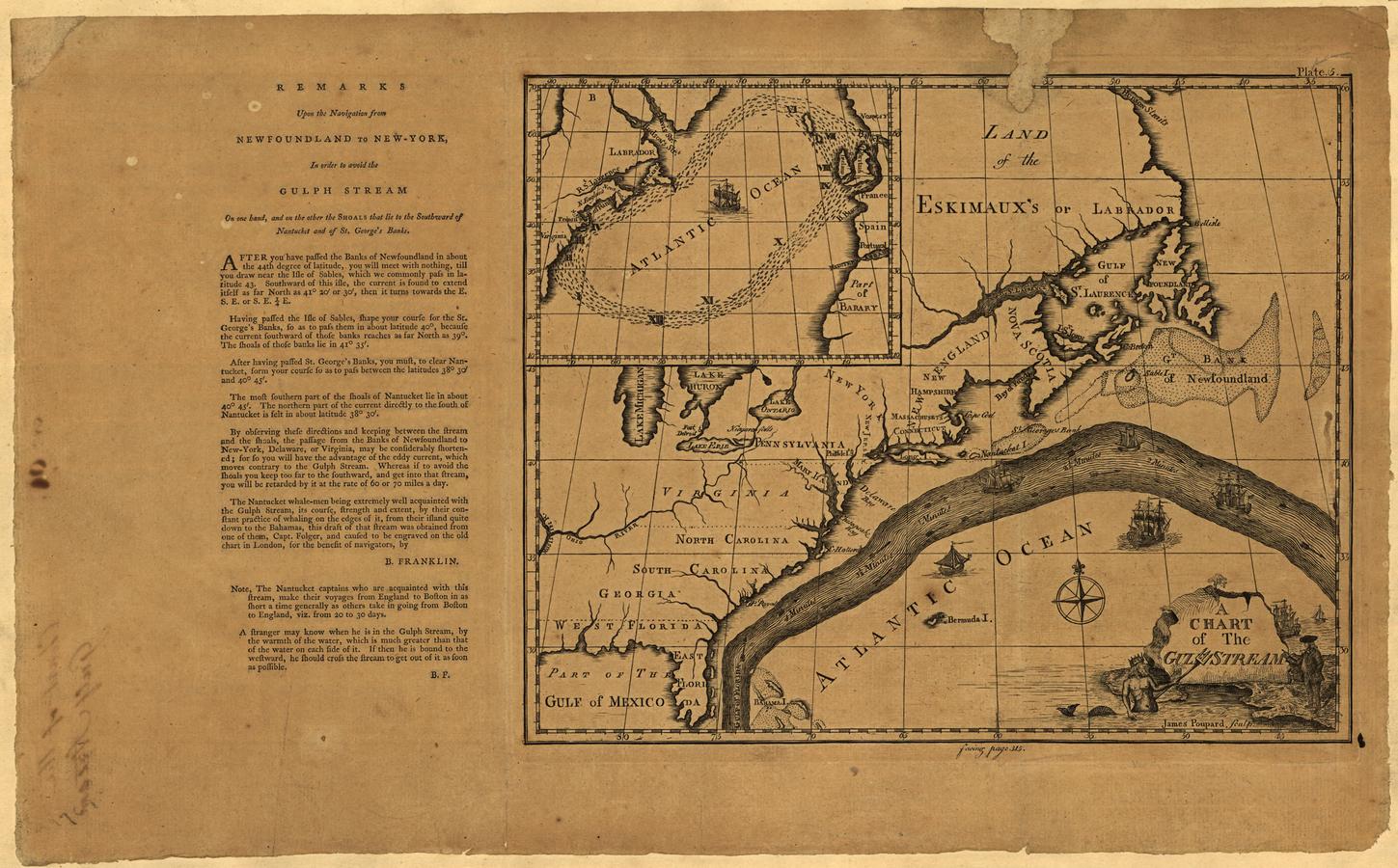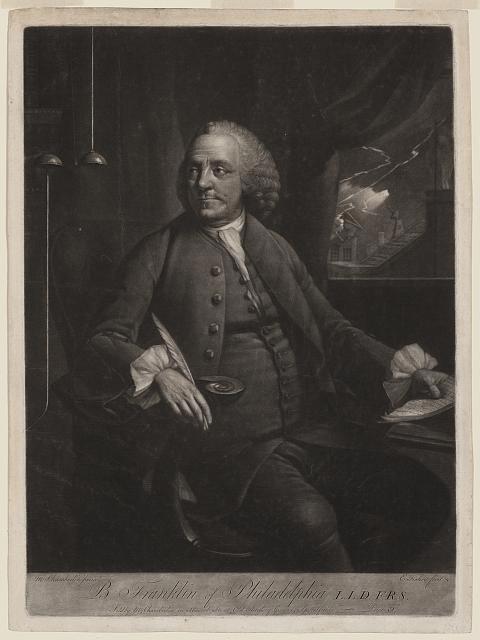Primary source set
Scott Brady
Identify the Mystery Person That Links These Primary Sources
-------------
A chart of the Gulf Stream
Although Spanish explorers had described the Gulf Stream, Franklin, fascinated by the fact that the sea journey from North America to England was shorter than the return trip, asked his cousin, Nantucket sea captain Timothy Folger, to map its dimensions and course. Franklin published this map and his directions for avoiding it in the Transactions of the American Philosophical Society in 1786. Systematic research, conducted by the U.S. Coast Survey, of the Gulf Stream did not occur until 1845.
http://memory.loc.gov/cgi-bin/query/h?ammem/gmd:@field%28NUMBER+@band%28g9112g+ct000136%29%29
Benjamin Franklin
"Maritime Observations
and A Chart of the Gulph Stream"
in Transactions of the American Philosophical Society. Philadelphia:
1796
Engraved map
Geography & Map Division (40A)
[gmd9/g9112/g9112g/ct000136]
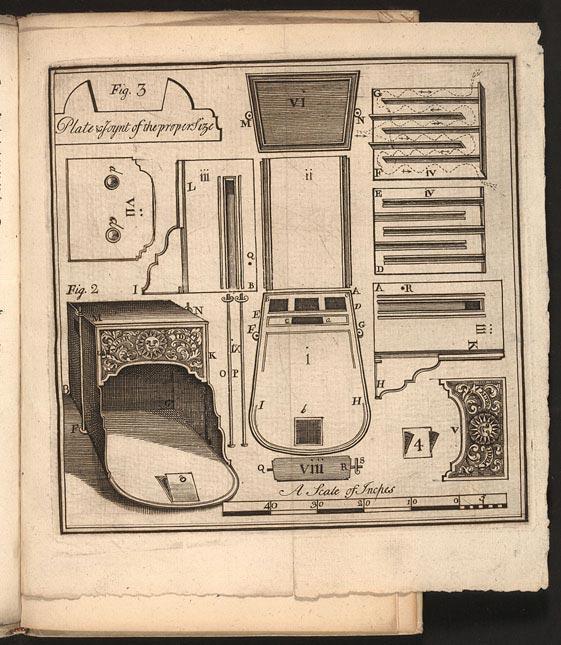
The Franklin Stove
Franklin wrote this description of the stove he had invented to promote sales of a model being manufactured by his friend Robert Grace. A series of partitioned iron plates permits a continuous supply of fresh warm air, separated from the smoke, to be distributed equally throughout the room. By controlling the airflow, less heat is lost, and much less wood is needed. Franklin's stove became so popular in England and Europe that this essay was frequently reprinted and translated into several foreign languages.
http://www.loc.gov/exhibits/treasures/images/bf0035s.jpg
Benjamin Franklin
An Account of the New Invented Pennsylvanian
Fire-Places.
Page 2
Philadelphia: Printed and Sold by B. Franklin, 1744
Rare Book & Special Collections
Division (35)
-------------
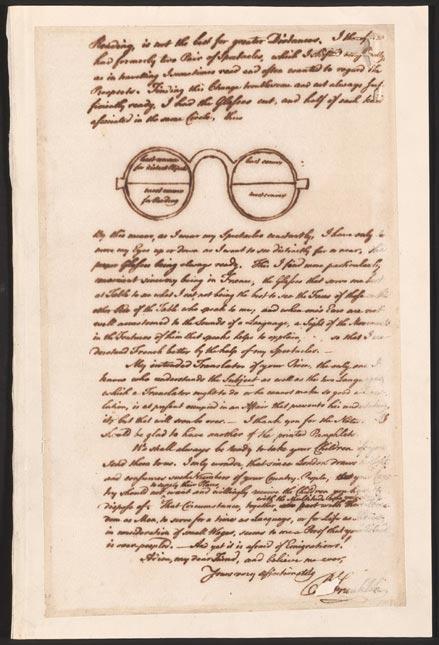
Franklin's Design for Bifocals
Benjamin Franklin is credited with the invention of bifocal glasses, which he sketched here for his friend George Whatley, a London merchant and pamphleteer. Franklin told Whately he found them particularly useful at dinner in France, where he could see the food he was eating and watch the facial expressions of those seated at the table with him, which helped interpret the words being said. He wrote: "I understand French better by the help of my Spectacles."
http://www.loc.gov/exhibits/treasures/images/bf0036s.jpg
Benjamin Franklin to George Whatley
(ca. 1709-1791), May 23, 1785
Letterpress manuscript
Manuscript Division (36)
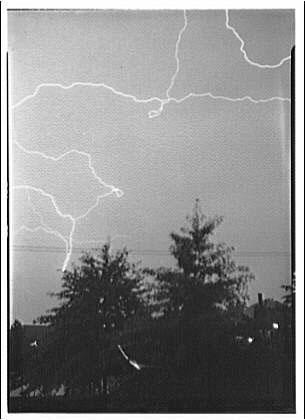
Lightning. Lightning over trees
1 negative : safety ; 5 x 7 in.
| Contributor: |
|---|
Horydczak, Theodor |
| Site: | Prints & Photographs |
|---|
| Original Format: | Photo, Print, Drawing |
|---|
| Date: | 1920 |
|---|
http://lcweb2.loc.gov/service/pnp/thc/5a37000/5a37000/5a37070r.jpg
Benjamin Franklin
This portrait, which depicts Franklin as a learned scientist and inventor, was one of his favorites. Pictured on the left is the signal-bell apparatus Franklin devised to detect the presence of electrically-charged clouds. The bolt of lightning , seen through the open window, became an attribute closely identified with Franklin. At Franklin's death French philosopher/scientist Jacques Turgot wrote: "He seized the lightning from the sky and the scepter from the hand of tyrants."
http://www.loc.gov/exhibits/treasures/images/bf0032s.jpg
Edward Fisher (1730-ca. 1785), after Mason Chamberlin (d. 1787)
Benjamin Franklin of Philadelphia, 1763
Mezzotint
Prints & Photographs Division (32)
LC-DIG-ppmsca-10083
